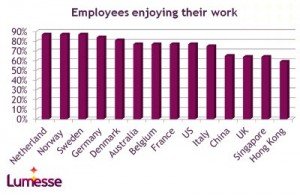The internet can add some very powerful tools to your job search arsenal and it is important to use these effectively. This article explores some of these tools.
Ø One of the best ways to conduct a job search is by using your personal contacts and networking. Nowadays, in addition to traditional methods, you can use the internet to do this by using online social and professional networks. Some examples of such utilities are LinkedIn, Facebook, Twitter, Orkut, A Small World, MySpace. Recently, these networks have seen a huge growth in users and are expected to keep growing. You can use them in many creative ways to display your resume/portfolio, promote yourself, find/discover relevant contacts, join communities of interest, get job leads and stay up-to-date on news and what your network is doing. We will discuss how you can use some of the more prominent ones. Many of the methods discussed apply to the other websites also, and you should be able to figure out how to use the ones most relevant for you, based on these examples.
o LinkedIn: LinkedIn is a professional network, which connects working people from around the globe. To start using the network, sign-up for a free account and enter your professional profile. Try to make the profile as complete as possible and treat it as though you are writing a resume. An increasing number of recruiters are using LinkedIn, so you must project the right image and provide them with comprehensive information in case they are looking at your profile. A complete profile (filled with keywords relating to your background/goals) also increases the chances that you appear in search results.
You should then import your contacts from Outlook, Gmail, Yahoo and so on. You can also search for contacts from companies you have worked and schools you studied at. Obviously, it is better to have a larger number of contacts, since that will give you access to exponentially more people - because you can reach people who are 1/2/3 degrees away from you (e.g. the connections your contacts have are 2 degrees away from you). However, it is very important to keep the quality of your contacts in mind. I would suggest adding only people you are comfortable asking a favour from, as your contacts.
During a job search you can search your contacts (and their connections) on various aspects, to see who/what can help you. For example, you can get background information on an interviewer or see who you know in common and find people you know in your target companies.
LinkedIn has various common interest groups (organisations, schools, communities, recruiters, people in a certain region and so on), which you join to have access to more people. It is a useful way to see what people you are interested in a doing and talking about. You might also receive an expression of interest for a job or freelance opportunity through the group.
o Facebook: Facebook is more of a personal network, where you share photos and other happenings with your friends and family. Many a times, you will have connections on Facebook who are not on LinkedIn and vice-versa. So you have access to more people who can help you during your job search, by using Facebook as well. The ways to use it are similar – promoting yourself and your ideas, getting job leads, background information on a person/company, common contacts, interest groups and so on.
A caveat when using Facebook – if you are including both personal and professional contacts in the network (which I don’t recommend), be very careful about the content you share. For the purely professional contacts you need to make sure you project a proper image, which can easily be undermined by seemingly harmless content.
Ø Job boards (such as Monster.com) are a very ineffective ways of looking for a job. However, there are ways to use them to your advantage, without much effort and possibly better chances of success. Instead of signing-up with individual job sites, try using aggregator sites (I like Indeed.com), which provide jobs from various different boards in one place. You can also use services which upload your resume to many job boards with one click. If/when registering for an individual job board site, it is typically better to go for one which is specialised in terms of geography, industry and so on. Also of use, is utilising keywords which are typical of your industry. This increases the chances of your appearing in employer searches.
Ø Consider a digital presence, which is available to employers and others 24/7. It allows you to showcase yourself and enables people to find you with a simple Google search. You could have a website or a blog, with your background, ideas, and samples of your work. You can also use multiple formats such as text, audio, video and so on. Drive traffic to your website by using search engine optimisation (SEO), Google/Facebook ads and so on.
Source: Sandbox Advisors








